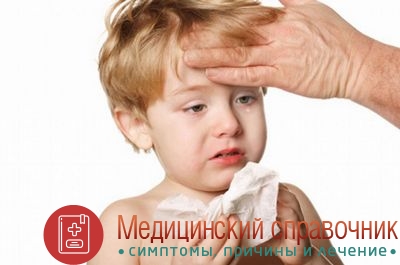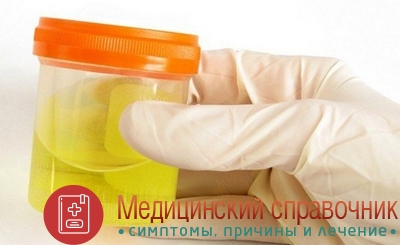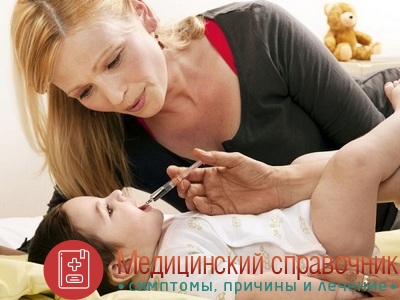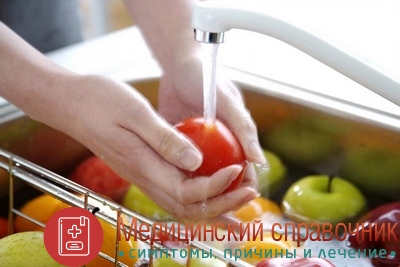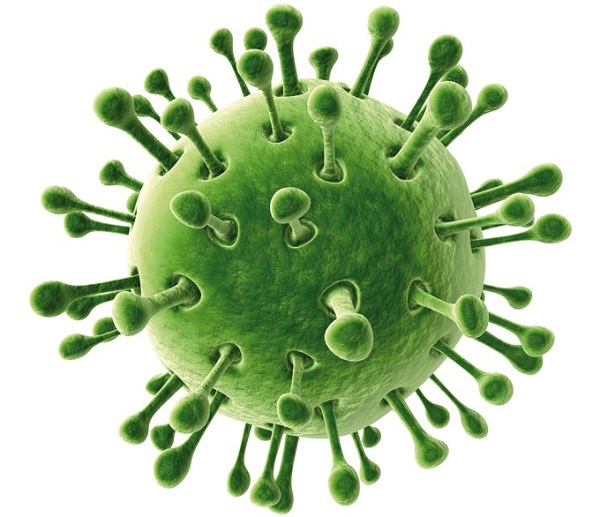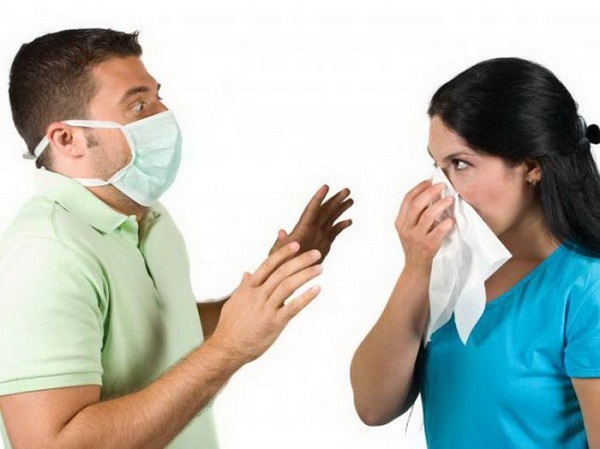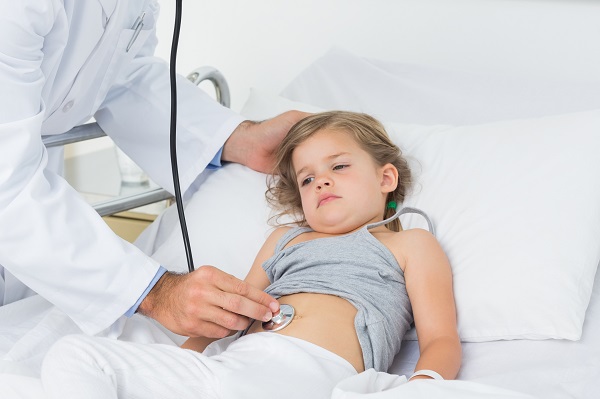Site sections
Editor's Choice:
- Technology and step-by-step instructions for nail gel: steps, rules, process
- White spots on the nails, reasons for what to do, white spots on the nails and folk signs
- Available methods for rapidly increasing blood leukocytes
- Nail and skin fungus will not resist the coffee grounds
- Crocus furniture exhibition. Furniture exhibitions
- Owl tattoo on arm value
- The biggest members in the world
- Fractures of the phalanges of the foot photo
- What is “bad” and “good” cholesterol
- What to do if the skin around the nails dries
Advertising
| What is a vomiting viral infection. Rotavirus infection in children: incubation period, signs and symptoms, how and what to treat? Types of rotavirus infections. |
|
Rotavirus is an intestinal infection caused by the Reoviridae virus, the main symptoms of which are disorders digestive tract. The disease occurs in both adults and children, and its incubation period is from 1 to 7 days. The way rotavirus is transmitted was first discovered by Australian scientists in 1973. This is the most common intestinal infection, which infects almost half of children under the age of three years, so it requires timely treatment. Its transmission occurs by airborne droplets, so the infection is referred to as “dirty hands” diseases. However, rotavirus is distributed almost everywhere, and it can be detected even in infants. Long-term excretion is also described. Infections caused by coronaviruses mainly affect infants and young children under 1 year old; newborns have repeatedly described epidemics of neonatal necrotizing enterocolitis. Other studies show infant incidence between months. The disease is often found in the clinical picture of hemorrhagic enterocolitis with fever and abdominal pain. Diagnosis of intestinal coronaviruses is limited to electron microscopy. As human pathogens, toroviruses have not yet been definitively confirmed, although viruses like toroviruses have been found in people with diarrhea in diarrhea in France, the Netherlands, the United Kingdom and Canada and have been described in children with acute and persistent diarrhea. Most often in patients with immunodeficiency, with nosocomial infections, in the clinical picture there is less frequent vomiting and more frequent addition of blood to the feces. The following factors cause rotavirus:
During pregnancy, in order to prevent infection, it is recommended that a woman not contact with patients, as well as follow a diet, use only steamed products, and clean boiled water. They can also cause human disease, as was shown in Indian children in Arizona. The disease lasted an average of 3 days and was sometimes accompanied by respiratory symptoms. They repeatedly met in the kiosks of animals and people, both children and adults. However, the role of these viruses in the etiology of diarrheal diseases is not sufficiently proven, as they are found in healthy people. Symptoms of rotavirus infection in adultsPreviously, they were considered a common cause of diarrhea in children, probably due to their replication in the small intestine. However, diarrheal diseases appear to constitute only a small fraction in the spectrum of diseases caused by enteroviruses. It seems that only some serotypes can be initiators, for example.
Company viral infection in adults and children begins acutely and has signs of gastroenteritis and enteritis. In the early hours of the disease, a high rise in temperature, nausea and vomiting, as well as severe weakness and indisposition, are noted. There are other signs during the period of infection: The Roller Solution can also be used for rehydration with a permanent nasogastric tube. Intravenous therapy is suitable for severe dehydration with loss of more than 10% of body weight in infants, hypertensive dehydration, or excessive vomiting. How is rotavirus infection transmittedIn addition to rehydration, replenishment is also important, depending on the age of the patient. For babies with full breastfeeding, it is recommended to give rice before conception, in infants older than 6 months and carrot juice. For artificially fed newborns, re-embalming begins with a full dose of rice or to remove carrots, and, in accordance with the clinical condition, it quickly goes to milk, which the child drank from the disease.
These symptoms of rotavirus are characteristic of both adults and children. In infants, the main symptom of an infectious disease is recession of the spring of the body during dehydration. Transmission and course of the diseaseElderly babies and toddlers can also be served with mixed or peeled bananas, grated apples, potatoes and rice puree, vegetable soup without fat, cookies, mixed rice with meat. An anti-diarrheal diet with a decrease in fat is suitable for older children and adults. Nonspecific antidiarrheal agents are particularly suitable for viral gastroenteritis, adsorbents and probiotics. Adsorption is mainly diosmectite, which is sometimes not very tolerated by some children for its occasional side effect - vomiting. Rotavirus in mild form is almost asymptomatic. Infection does not cause fever and severe dehydration, and loose stools celebrated no more than three times a day. It is not necessary to treat this condition and use a specific diet, as it passes within a few days. In severe cases of an infectious disease in adults and children, the following signs are revealed - loose skin, dry lips and tongue, as well as cramps, a decrease in blood pressure, loss of consciousness. Antimatopoei are not commonly used and are more likely to be associated with older children and adults. Intestinal disinfection or antibiotic treatment is not warranted for intestinal viral infections. In the treatment of rotavirus gastroenteritis, drugs that inhibit hypersecretion of the intestine were also tested abroad, and passive immunization was carried out. Full recovery timeViruses are common causes of intestinal infections in children and adults, both sporadic and epidemic, can be significant nosocomial pathogens and cause life-threatening diseases. Because of their increasing number and importance, it would be advisable to improve the diagnosis of rotavirus and reporting in the Czech Republic after registering the vaccine, including rotavirus vaccination, at least in risk groups, and introducing modern diagnostic methods to detect other viruses, at least for epidemic events.
In the presence of these symptoms, the woman must pass tests and then undergo adequate treatment.
Rotavirus is a fairly common disease, the peak of which comes in the autumn-spring period. The doctor may make the primary diagnosis based on the patient's complaints about vomiting, nausea, runny nose, diarrhea with sour smell and yellow. Increased excretion of rotavirus after severe diarrhea in young children. The first case of confirmed rotavirus meningoencephalitis in Germany. Comparison of seven sets for the detection of rotavirus in fecal samples with sensitive specific ELISA. Enhancement of the polymerase chain reaction and typing of rotavirus nucleic acid from stool samples. Calicivirus infections in children. Norwalk virus and related caliciviruses that cause gastroenteritis. Food-borne viral gastroenteritis. An outbreak of viral gastroenteritis due to drinking water contaminated by the noorah-malignant virus. On visual examination, the therapist notes in adults and children the clinical symptoms of the disease - dry and flabby skin, tongue with a grayish bloom, and a distended stomach. Additional methods diagnostics are:
An immunofluorescence blood test for the detection of antibodies is mainly used to diagnose the disease in adults. In children from 3 years the immune system is not strong, so it is not able to produce the body, so they have this method of examination is not indicative. Observance of sanitary and hygienic rulesNorwalk-viral food poisoning after eating oysters. Scaling up of viral gastroenteritis in Europe and the spread of the epidemic by a new variant of Novorirus. Outbreak of viral gastroenteritis after pollution in the concert hall. Epidemiology of intestinal adenovirus infection in prospectively controlled Argentinean families. Outbreaks of human intestinal adenoviruses 40 and 41 in Houston kindergartens. Astrovirus infection in combination with acute, persistent and nosocomial diarrhea in Bangladesh. A large outbreak of acute gastroenteritis associated with astrovirus among students and teachers in Osaka, Japan. During pregnancy, the above methods are used to diagnose the disease, but to confirm the normal development of the fetus, it is necessary to consult a gynecologist and an ultrasound scan. After a comprehensive examination, the doctor prescribes a suitable treatment and diet, which will help to normalize the patient’s condition and strengthen the immune system. Astrovirus infection in children. Epidemiology of acute viral gastroenteritis in hospitalized children in the city of Cordoba, Argentina: understanding the burden of disease. Epidemiology of acute viral gastroenteritis in children hospitalized in Rouen, France. Astroviruses as a cause of gastroenteritis in children. Astroviral acute gastroenteritis among children in Madrid, Spain. Association of coronavirus infection with neonatal necrotizing enterocolitis. Pestiviruses: the main etiological agents of gastroenteritis in infants and children.
There is no specific treatment for rotavirus infection, since the disease is symptomatic. Therapy is primarily aimed at eliminating the symptoms - vomiting, fever, poor appetite and severe dehydration, and during pregnancy is indicated rest. In case of a mild infectious-inflammatory process, a special diet is prescribed, which includes: Polioviruses, coksakiviviruses, echoviruses and enteroviruses. Textbook on infectious diseases of pediatrics. The situation with interference in children occurs when rotavir attacks. This is a serious and dangerous diarrhea and vomiting. Risk is the result of diarrhea and vomiting. The baby is hydrolable and dehydration occurs very quickly. Rotavirus transmission occurs, as the infectious organs say, through the oral route, but this is also possible through the respiratory tract. In humans, respectively. With a baby, was discovered this year. A form of nosocomial infection, that is, an infection that occurs in a medical facility, is possible and, of course, there are a lot of children attending preschool institutions. Statistics show its appearance mainly in spring, but can be registered at any time of the year.
Rotavirus can be treated not only medication drugsbut also folk remedies. For churning high temperaturealleviating gastrointestinal symptoms and relieving painful sensations It is recommended to use a mixture of 1 tsp. elm rusty and 1 tsp. cinnamon There are no specific drugs for the virus! The pediatrician, in collaboration with the family, should monitor the development of the disease in outpatient and home conditions. Various rehydration solutions are available as options, which are available in various dosage forms of finished medicines. Small babies who still have better protection, even if they are not 100% counterfeit. However, in case of infection, the cause of breastfeeding is not complete, but, on the contrary, it is advisable to continue. If the children are on an artificial diet, it is recommended to start eating with a “tea break” and then add carrot and rice flavors, which are gradually added back to the original dairy products. The basis is rehydration and body water management. . Rotavirus infections can be dangerous, but there is no need to panic. Treatment with this composition is carried out until complete recovery, and on the day it is necessary to use this mixture at least two times. It is necessary to treat rotavirus with the help of a water-salt composition, which is very good for dehydration. In the period after cessation of vomiting, the pectin mixture will be able to alleviate the condition of the patient, but instead of it you can use baked apple, rice broth and carrot-apple juice. Complications after rotavirus infectionAlthough the disease is often under-researched, more than two million children die in the world. In Jesse, in particular, this is a serious problem for a child all over the world. Primary diseases can cause severe dehydration, renal failure, and general collapse of the body. Most common cause infectious diseases in children is a rotavirus infection, against which they can be vaccinated. A medical device is not only a device where children lie, but also a place of pleasant contact, so that some diseases are easily transmitted here. A child in hospital is easily infected with a strong infection and must deal with other health complications. For the treatment of diarrhea in traditional medicine used dried blueberries, from which you can make compote. They drink it before and after meals. However, before taking these folk remedies, especially during pregnancy, it is necessary to consult a doctor.
Measures to prevent rotavirus infection include:
These simple preventive measures and careful dieting will prevent infection by the virus, as well as alleviate the condition in adults and the child after infection. If this disease is not treated, it can lead to severe dehydration and other complications. Gastric flu (rotavirus infection) is a common disease that is diagnosed in people of any age. How contagious is rotavirus intestinal infection, how long does the incubation period last? How to avoid infection? The causative agent of rotavirus intestinal infection is a special pathogen that penetrates into the stomach of a person with dirty hands, food, or by contact with an infected person. The disease is often epidemiological in nature, most often found in the cold season. The incubation period is up to 5 days, but often the first signs of the disease begin to appear on the first day after infection. The virus is resistant to cold, does not die when water is chlorinated.
Is intestinal infection contagious? Yes, since it is transmitted by airborne droplets, the source of the infection may be a sick person, or a carrier of the virus. You can become infected anywhere with a large crowd of people. Who is at risk:
How many rotavirus infections are contagious? A person is considered contagious from the first signs of the disease until the end of treatment. Quarantine is 10 days. How many days does the treatment last? With timely treatment to specialists, it is possible to cure rotavirus infection in 7–10 days. Can I re-catch intestinal infection? 7 days after infection, the body produces strong immunity to intestinal influenza viruses. Re-infection is diagnosed extremely rarely, with the exception of people with a weakened immune system. But the intestinal flu virus constantly mutates, so you can get other forms of rotavirus infection.
When rotavirus enters the human body, it affects the gastric mucosa, nausea, vomiting, and swelling occurs. The virus interferes with the normal breakdown of foods, unsplit foods are toxic to the body - severe diarrhea and intoxication occur. What is dangerous rotavirus infection? Intestinal flu when proper treatment has no particular complications. The main danger is dehydration. When diarrhea, the body loses a lot of fluid, the amount of urine is reduced. Against the background of lack of fluid, there can be confusion, a sharp decrease in blood pressure, convulsions, and irreversible changes in the nervous system. With a shortage of water in the body of more than 20% can be fatal.
Infants do not suffer from intestinal flu, since protective antibodies are obtained from the mother's milk. But babies who are bottle-fed from birth can become sick with an intestinal infection at 3–6 months. The incubation period in children is latent, its duration is up to 5 days. Then the disease enters acute stage - for 3–8 days, the child will be tormented by frequent bouts of vomiting, painful abdominal cramps, and stool disorder. Rotavirus infection in children occurs on the background of high temperature - 39-40 degrees. All signs of influenza are manifested - cough, runny nose, inflammation of the throat and mucous membranes of the eyes. Diarrhea - the main and most dangerous symptom diseases, child attacks may occur more than 10 times a day. On the first day, fecal masses have yellow with a sour smell. In the following days, the chair acquires the consistency of clay, has a yellowish-gray color. The recovery period takes up to 5 days - during this period the child is no longer a danger to others. The baby may still be disturbed by residual intestinal and respiratory phenomena.
What Dr. Komarovsky says about rotavirus infection:
For the treatment of intestinal infections in children use anti-diarrhea, to eliminate signs of intoxication, antipyretic drugs, antispasmodics. In the recovery period, be sure to take drugs to restore intestinal microflora. The simplest solution against dehydration can be prepared from 1 liter of warm water, 30 g of sugar, 5 g of salt and 5 g of soda. The child should drink the solution in small portions as often as possible. The optimal amount of urination is 1 time in 3 hours.
Until full recovery of the child dairy products are absolutely contraindicated - but if the baby is on breastfeeding, it needs to be fed exclusively by mother’s milk. You can not give the child anything fried and fatty, from the fruit and juice at the time will have to be abandoned. Intestinal flu is often diagnosed in pregnant and lactating women. Rotavirus does not affect fetal development; a pregnant woman should replenish fluid loss and take safe medicines for diarrhea. In case of rotavirus infection, a nursing mother should observe all hygienic standards with special care, monitor the condition of the baby’s stool.
How to distinguish intestinal infection in adults from food poisoning? Both diseases have absolutely similar manifestations, symptoms may appear simultaneously in several family members or one group. The only difference is the duration of the disease. Signs of poisoning pass in a maximum of 3 days. Intestinal flu lasts about 10 days. The incubation period of intestinal infection in adults is from 12 hours to 7 days. The disease often proceeds without any special symptoms, or in the form of a slight indisposition, the temperature rises only in every 10 patients.
To prevent infection with rotavirus infection, children can be vaccinated. Rotarix vaccine - contains 1 rotavirus, it is used orally. The first dose is given to a baby at the age of 6–12 weeks, the second - in 4 weeks. Vaccination is not given to children older than 6 months. RotaTeq vaccine - contains 5 rotaviruses, is used orally. Vaccination is carried out in 3 stages. The first - in 2 months, the second - in 4 months, the third - in six months. Vaccination should begin no later than 12 weeks, it should be completed by 32 weeks. Both vaccines can be given at the same time as other vaccines. In vaccinated children, the risk of complications is reduced by 75%, but vaccination can be done only in commercial medical institutions, since rotavirus vaccinations are not included in the list of necessary measures. The peak of the disease occurs in winter, but many suffer from intestinal flu during summer holidays at sea. All pathogens actively reproduce in a humid and warm environment, visiting people do not have immunity to local viruses.
How not to get an intestinal infection at sea:
You must refrain from buying food of dubious origin on the beach. At the first sign of an upset stomach, take absorbents. Contagious or not rotavirus infection? Like regular flu, intestinal flu is passed from person to person during sneezing and coughing. Therefore, in educational institutions there are often epidemics of this disease. With proper drug treatment the disease goes away within 10 days. But if you do not go to the doctor in time, you may experience serious complications. |
| Read: |
|---|
New
- Sequence of procedures
- The program of intensive moisturizing of the skin on cosmetics bark
- What you need for acrylic powder
- What does owl mascot mean
- Analyzes for pancreatitis: what research should be done and what indicators show
- Owl - a talisman to attract money and good luck
- What bird screams at night with a kitten's voice?
- Cholesterol and stress
- Manicure at home
- Effective facial

